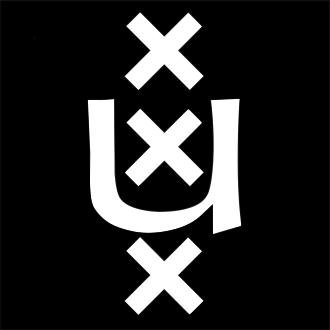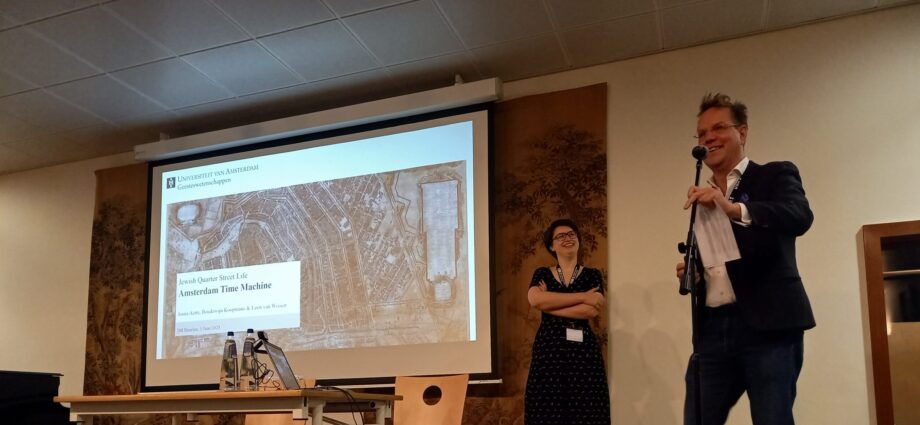From the 31st of May until the 2nd of June, the Amsterdam Time Machine joined Digital Humanities Benelux for the 10th edition of its annual conference. This year’s theme was ‘Crossing Borders’, exploring digital humanities research across different languages and different modalities. The conference started off with a day of workshops, where participants could learn about Linked Open Data, the web-based transcription tool Transkribus Lite, data orchestration software kiara, and much more. The session on Linked Open Data taught the participants about the Semantic Web, and provided hands-on practical exercises on Wikidata. We played around with the Wikidata Query Service and SPARQL’ed different kinds of queries.
On the second day of the conference, Janna Aerts and Boudewijn Koopmans presented the progress and challenges of the Amsterdam Time Machine’s pilot project on Jewish Amsterdam. In this project, we connect datasets from different archives and heritage collections about Jewish Amsterdam by focusing on two streets: the Jodenbreestraat and the Nieuwe Amstelstraat. This will enable researchers to tell the stories of the people living in this quarter and make the five centuries of Jewish presence in Amsterdam more visible. The DHBenelux Conference was the perfect opportunity for us to demonstrate the potential of (linked) open data techniques to an audience of specialized scholars and ask for feedback from other initiatives within the field of digital humanities. The presentation was met with a lot of positive reactions, suggestions, questions and even some ideas for future collaborations!
Janna Aerts, June 2023
2023-06-28

